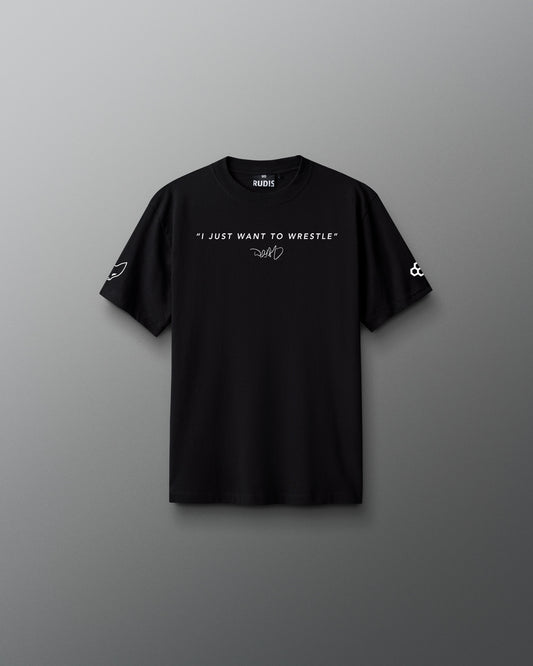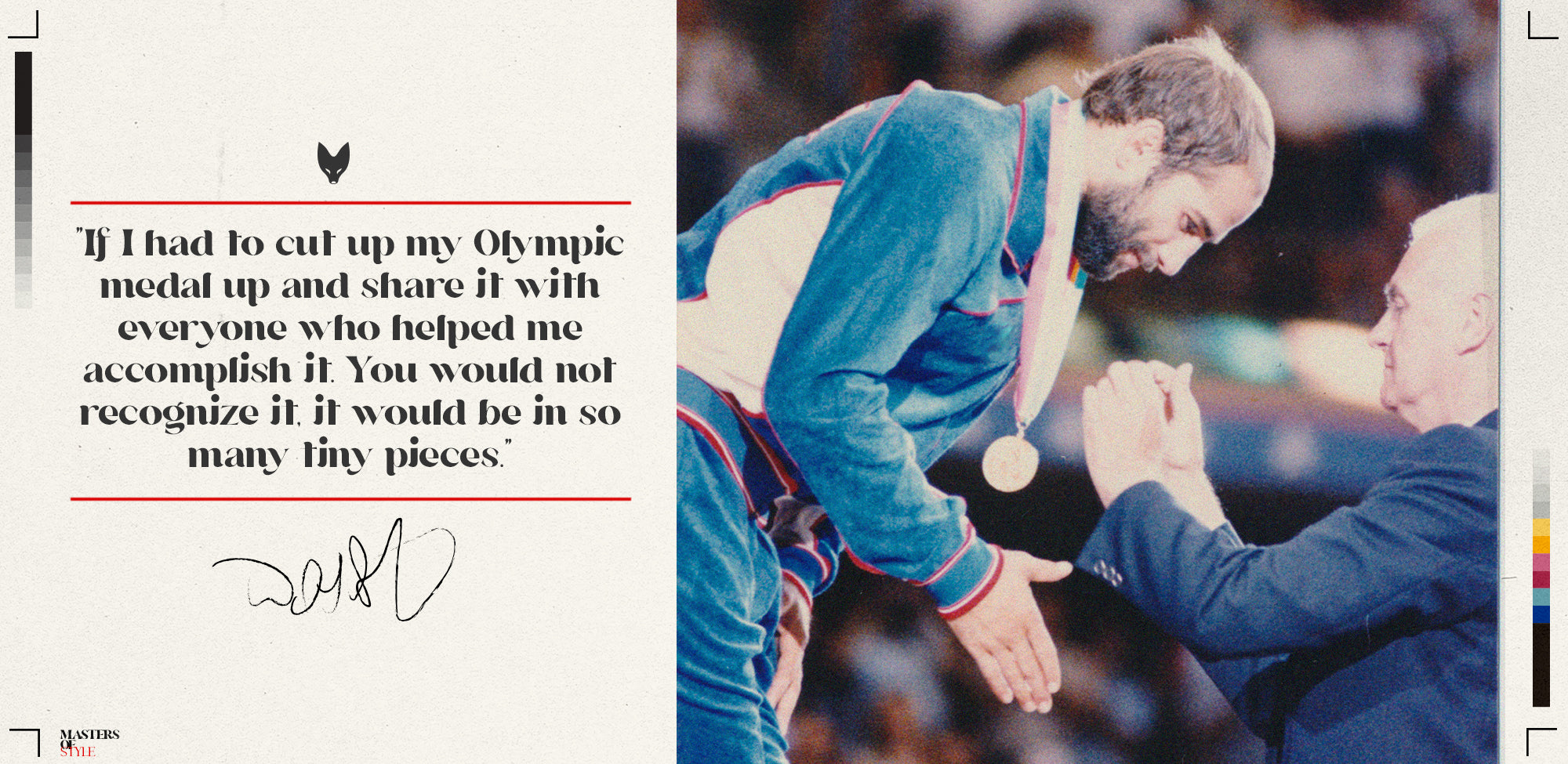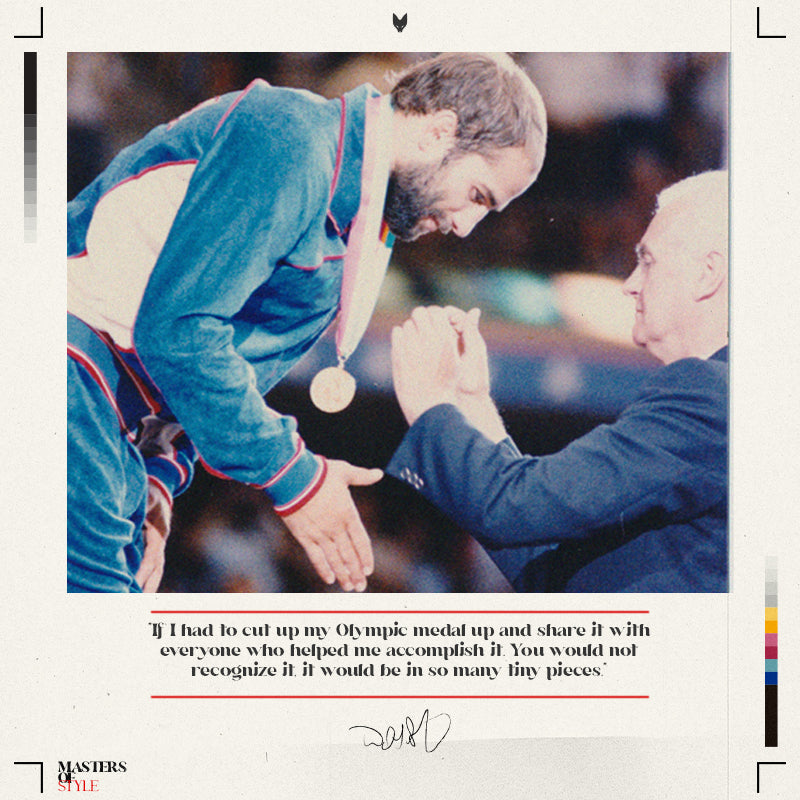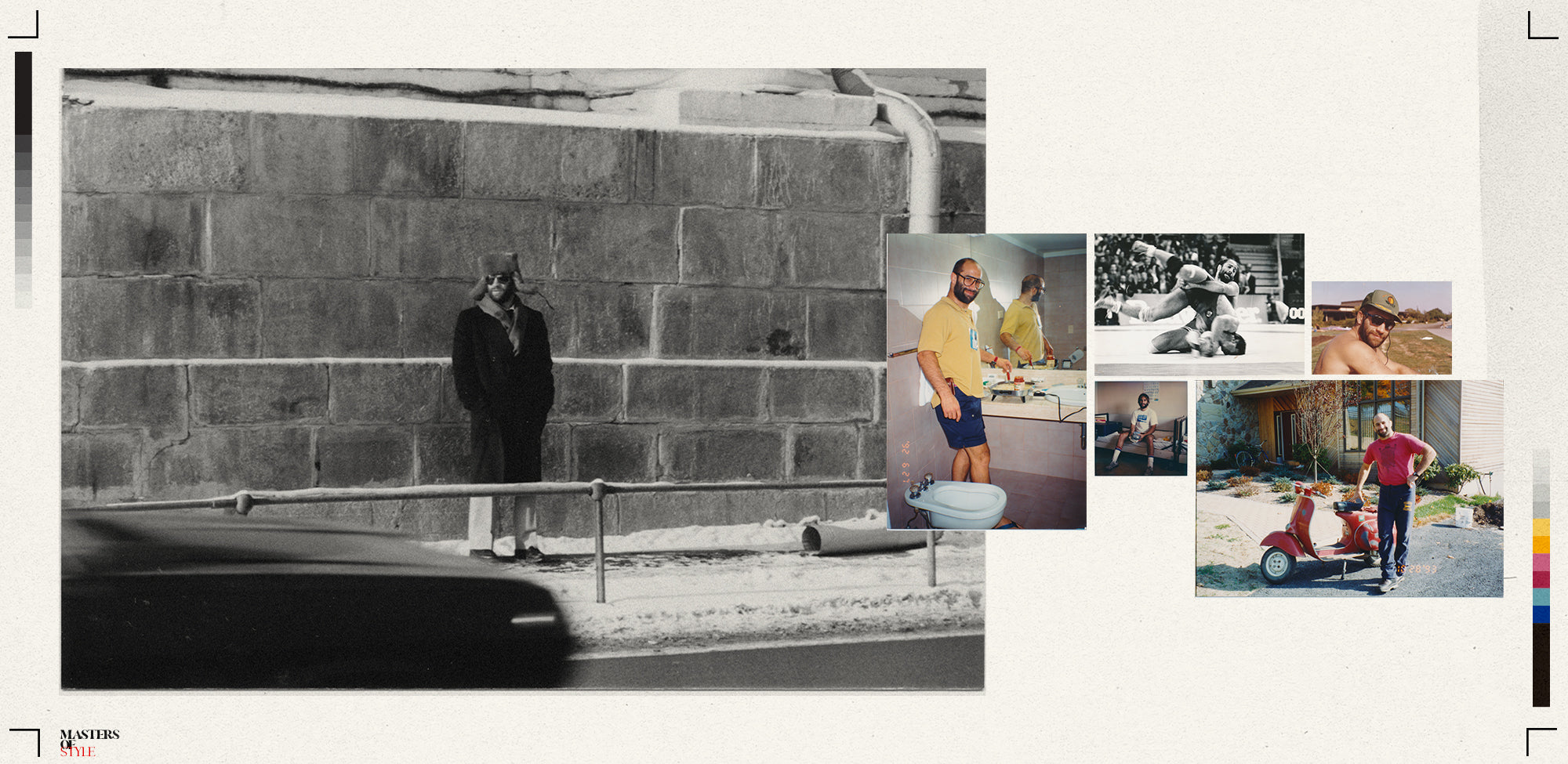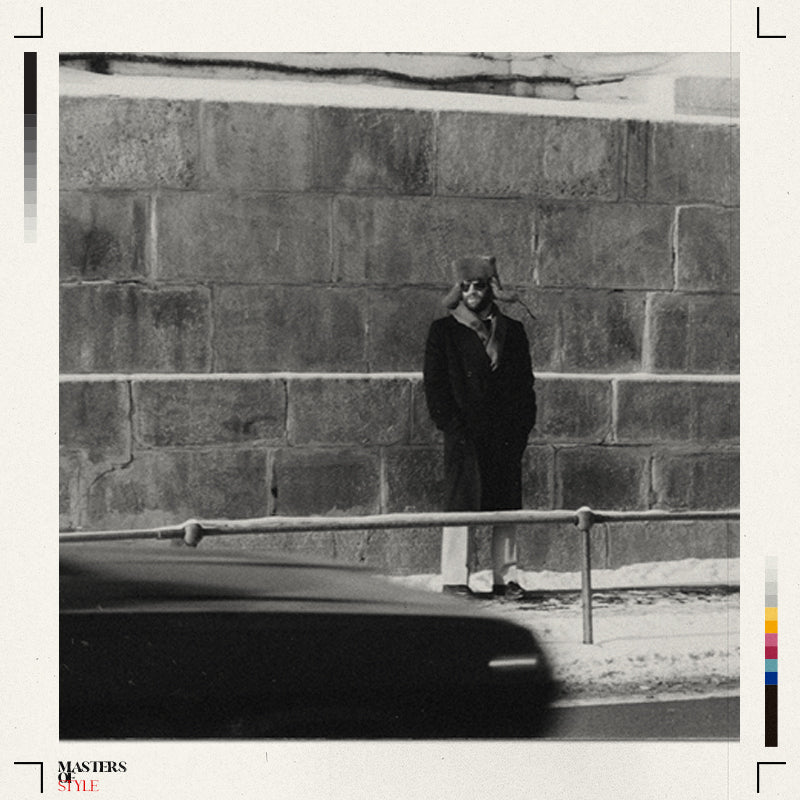Masters of style: Dave Schultz
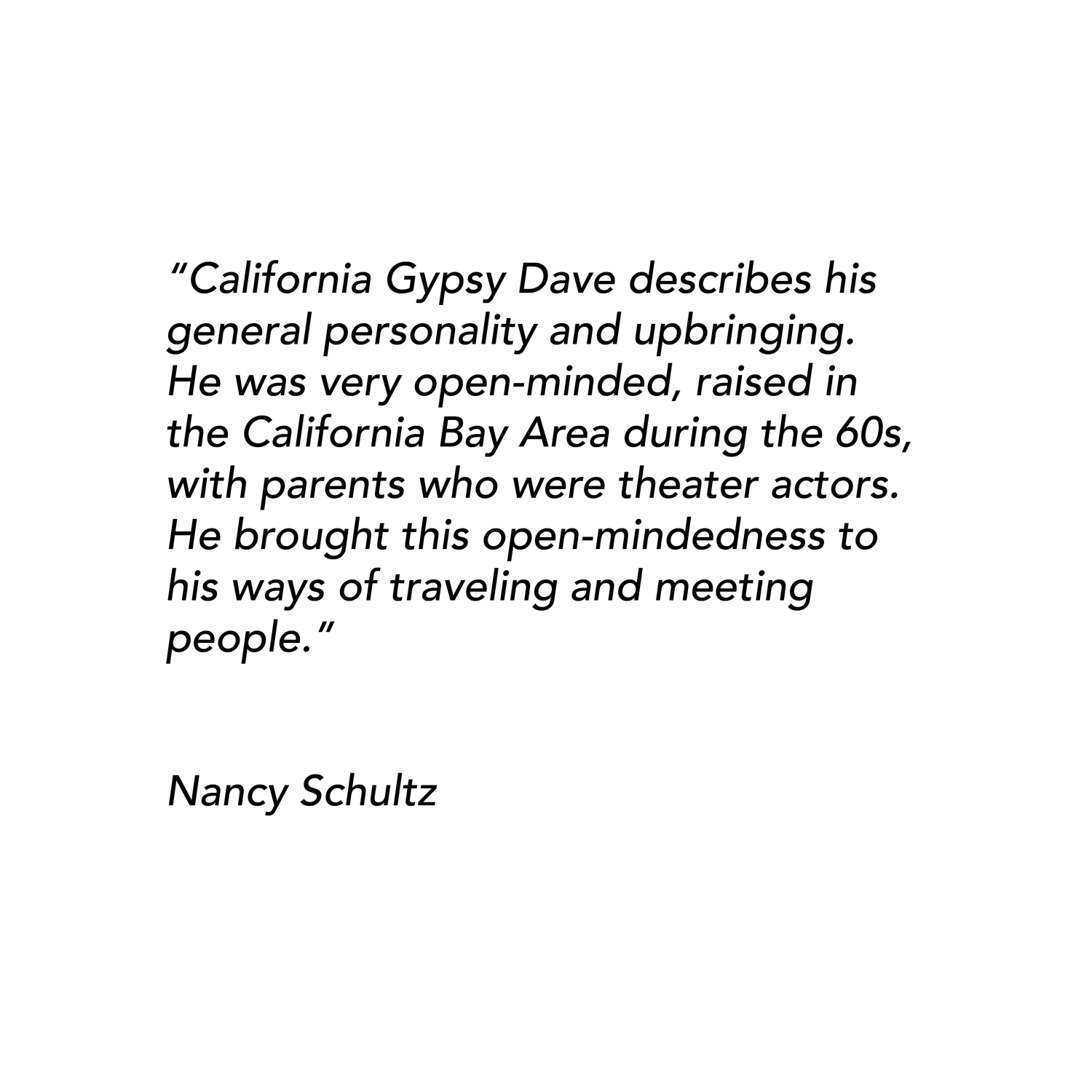
A Master of Style is not merely someone who follows trends but an individual who boldly asserts their identity, creating a unique tapestry that reflects their essence. They are creators, crafting a narrative through their actions and etching a legacy with their unique, captivating style. Perhaps one of the greatest examples of a style master is the late and great Dave Schultz.
Today marks 28 years since Dave left this earth. In celebration of his life, we delve into the stories and distinctive style of Dave Schultz, a California hippy whose approach to life and wrestling set him apart.
In an illuminating conversation with Nancy Schultz, Dave's widow, and David Lee, a close friend of Dave’s, we delved into the nuanced details that defined Dave's essence – from his favorite foods and iconic quotes to his hobbies, captivating stories, and the distinctive way he navigated life.
Dave had a childlike love for life. The world was his playground. He was so comfortable with his quirks and individuality that he made it easy for those around him to be themselves.
He was notorious for his ability to make friends around the globe. His ability to speak multiple languages wasn't just a skill; it was a passport to genuine and profound connections. His teammate, Bruce Baumgartner, claims, “Dave could say 50 words in 50 languages.” Fluent in both English and Russian, he navigated seamlessly through countries like France, Japan, Italy, Bulgaria, or any other destination where his wrestling journey took him—making him not just a visitor but a welcomed friend.
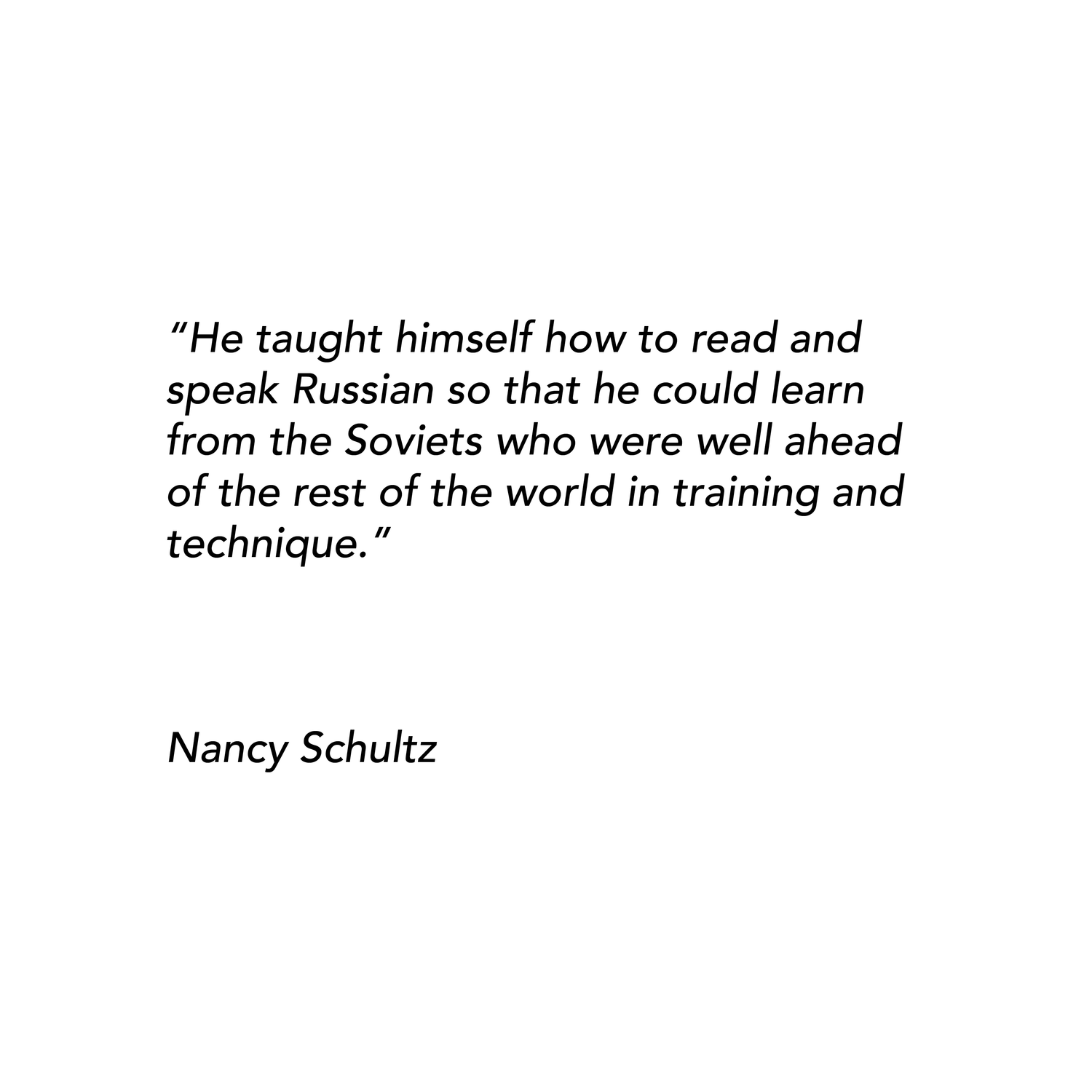
But maybe one of the most unique qualities about Dave’s style was his ability to flip a switch when he stepped onto a wrestling mat. The smiles, handshakes, and contagious laughter that people associated with Dave were nonexistent during a wrestling match. The night and day shift in his personality was perhaps what caught his opponents off guard the most. He approached wrestling like a game of chess. His style was technical. He loved to trick his opponents with sneaky moves or unusual techniques - coining his most iconic nickname given to him by the Russians - the “Sly Fox.”
Nancy Schultz admitted, “He liked messing with people's minds, like sitting down and talking to Kenny Monday about how his family was right before they were ready to go out and wrestle each other.”
He loved techniques that would use specific finite movement over brute strength. He was the “Michael Angelo of wrestling, using applied scientific principles of fulcrum, balance, and motion,” shared Nancy.
While his approach was mathematical, a part of his equation was inflicting pain.
Despite being a savage on the wrestling mat, Dave never harbored dislikes or animosity towards a fellow wrestler. He wrestled not with hatred, but with mastery. Dave was an artist, and wrestling was his canvas of self-expression. A devoted student of the sport, he remained perpetually open to mastering new techniques. Dave's ability to read and speak Russian, a language that unlocked the secrets of Soviet training and techniques, placed him ahead of the global competition. He would ask Cary Kolat, a high schooler at the time, for insights on his technique. Dave wasn't bound by ego; he eagerly sought technique hints from anyone he faced on the mat. Humble and insatiably curious, Dave was a perpetual learner.
With a free spirit, a linguistic virtuoso, and an ever-curious mind, he transcended the boundaries of convention, inspiring a generation to embrace their quirks and champion their own style. Dave Schultz, the master of his craft, continues to resonate as a beacon of authenticity, urging us all to paint our own masterpieces, be unapologetically ourselves, and become true Masters of Style.
Q&A with Nancy Schultz and David Lee
-
What were Dave’s hobbies?
-
“He loved hunting, being in the woods, videotaping wildlife, making bullets,building things (carpentry), learning to make fishing lures, practicing Tai Chi, playing with his kids, shooting guns for target practice, traveling, learning languages, spending time with friends, drinking coffee, cooking, and learning about the world and the people in it.”
- Nancy Schultz
-
What was Dave’s favorite food? Post weigh-in snack?
-
“He loved coffee from everywhere. He roasted his own beans at home sometimes. He was an advocate of whole foods and hunted some of the meat we ate: venison, goose, etc.”
- Nancy Schultz
“Sushi…and caviar. He liked bee pollen after making weight.”
- David Lee
-
Did Dave have any iconic quotes or phrases?
-
“If I had to cut up my Olympic medal and share it with everyone who helped me accomplish it, you would not recognize it; it would be in so many tiny pieces.”
“Be nice to everyone on your way up, because you will see the same people on the way back down.”
“You can learn something from everyone you meet. Just listen.”
“Everything in moderation, including moderation.”
-
Did Dave have any rituals when it came to training and competition?
-
“Dave had a ton of habits, rituals, and quirks over the years:
- ‘Rusty’ was a lucky handkerchief shared with Bruce Baumgartner
- A few lucky singlets were worn more than others
- Reverse hours sleeping and awake before he went to Russia
- Listening to music with headphones (unusual then) while warming up…everything from classical to Red Hot Chili peppers.”
- Nancy Schultz
“He loved spending a lot of time in coffee shops before finally making it to the wrestling room for practice. Also, he would always be the last one ready to leave the facility be it practice or a tournament.” - David Lee
-
What surprised you the most about Dave?
-
“Dave’s humility and open-mindedness were what I learned most from him. There is a famous story about Dave speaking to a janitor in a Russian town before a match. The other wrestlers were making fun of him. Later in the competition the “janitor” took off his coveralls and went out to kick the ass of one of our US wrestlers. It turned out that he was a World and Olympic Champion who lived in that town and coached at the club that was hosting the event. The janitor had not shown up to clean the area so this wrestler just did it. Dave was the only one that bothered to talk to a janitor. He often found time to have meaningful conversations with humans around him.”
- Nancy Schultz
“I was surprised by his intelligence; how smart, insightful, and unique his views were. And, how that intelligence manifested itself in humor and quirky opinions about world events. How he could find humor in almost any situation.”
- David Lee
-
How would you describe Dave’s wrestling style? How did he master it?
-
“Dave competed on the international level from 1977 to 1996, so his style and focus changed over the years. At the end of his college career, he made a huge change in his stance to become more Soviet, lowered, and more bent at the hip. He was in pain and less effective for months as this transition developed. He then mastered the gut wrench internationally. Later, the cross ankle became a huge success for him.”
- Nancy Schultz
“Dave’s style was pure technique. He mastered it by studying the greats, asking a lot of questions, and keeping a lot of notes. He was dedicated to the craft and constantly worked on perfecting techniques and creating new techniques based on his broad foundation.”
- David Lee
SHOP THE DAVE SCHULTZ COLLECTION
Regular price
$145.00
Sale price
$145.00
Regular price
$145.00
Unit price
per
RUDIS Samurai Speed Adult Wrestling Shoes - Wind


Regular price
$135.00
Sale price
$135.00
Regular price
$135.00
Unit price
per
RUDIS Samurai Speed Youth Wrestling Shoes - Wind


Regular price
$135.00
Sale price
$135.00
Regular price
$135.00
Unit price
per
RUDIS Samurai Speed Youth Wrestling Shoes - Void
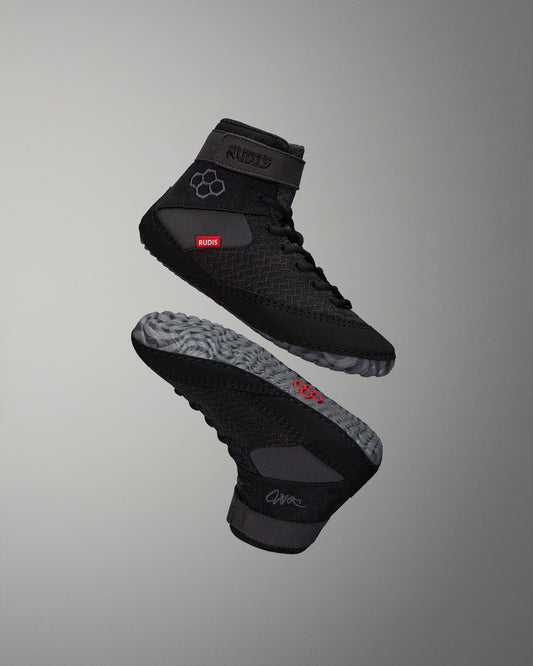

Regular price
$145.00
Sale price
$145.00
Regular price
$145.00
Unit price
per
RUDIS Samurai Speed Adult Wrestling Shoes - Fire
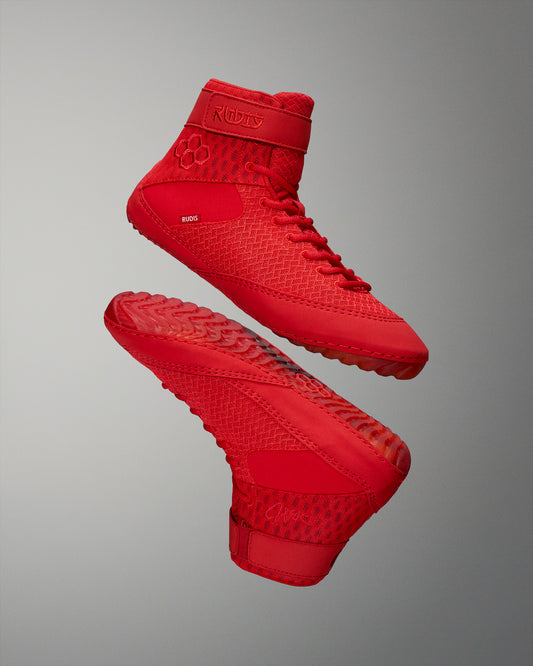
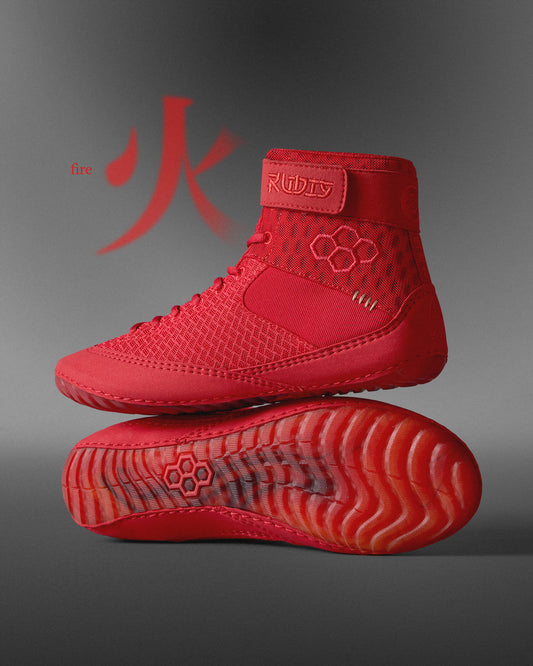
Regular price
$145.00
Sale price
$145.00
Regular price
$145.00
Unit price
per
RUDIS Samurai Speed Adult Wrestling Shoes - Void

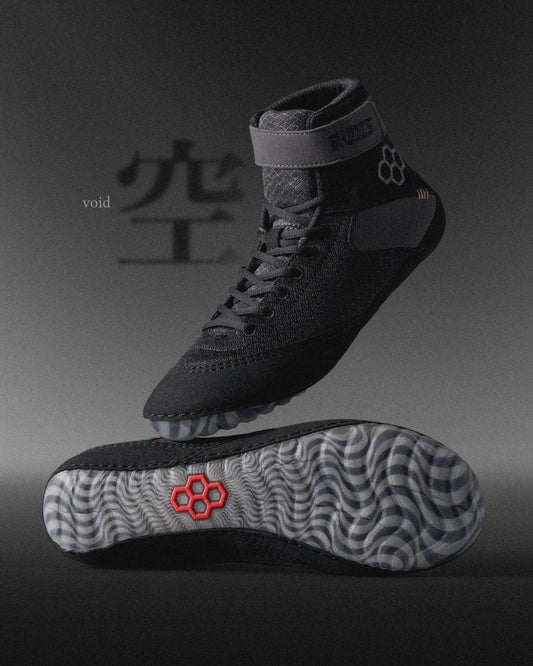
Regular price
$45.00
Sale price
$45.00
Regular price
$45.00
Unit price
per
Sly Fox Performance T-Shirt
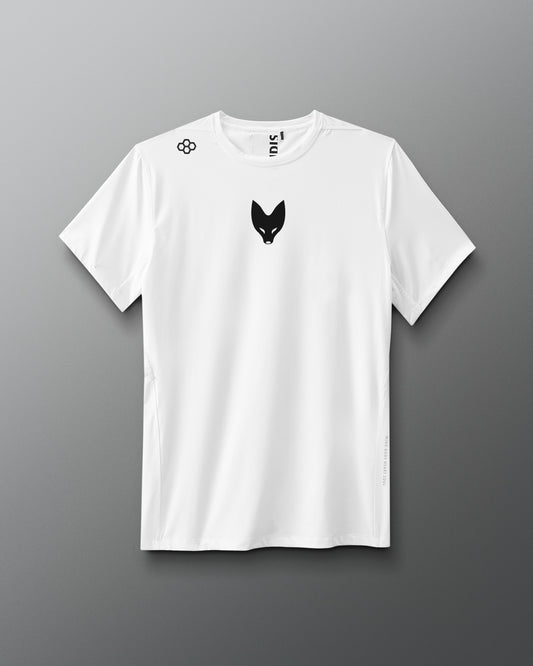
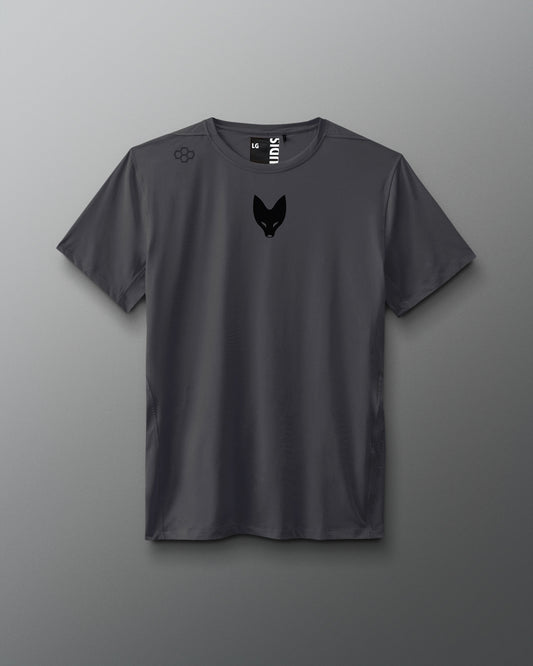
Regular price
$40.00
Sale price
$40.00
Regular price
$40.00
Unit price
per
Dave Schultz Art Poster
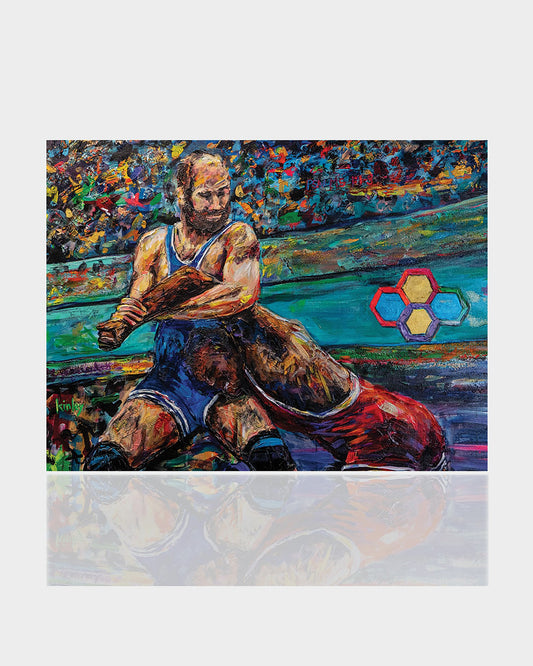
Regular price
$85.00
Sale price
$85.00
Regular price
$85.00
Unit price
per
Sly Fox Mat Master Elite 2.0 Singlet
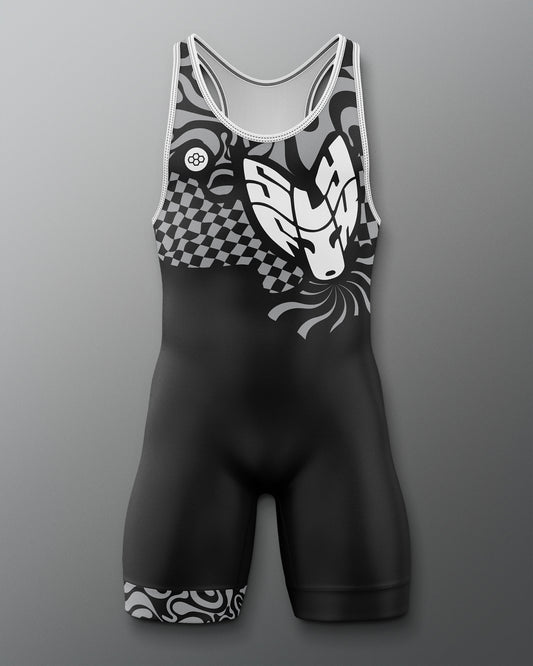
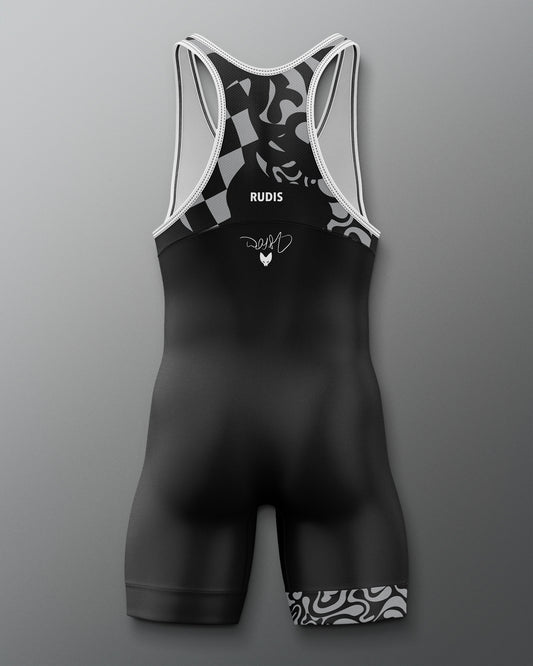
Regular price
$85.00
Sale price
$85.00
Regular price
$85.00
Unit price
per
Sly Fox Mat Master Boy's Elite Singlet
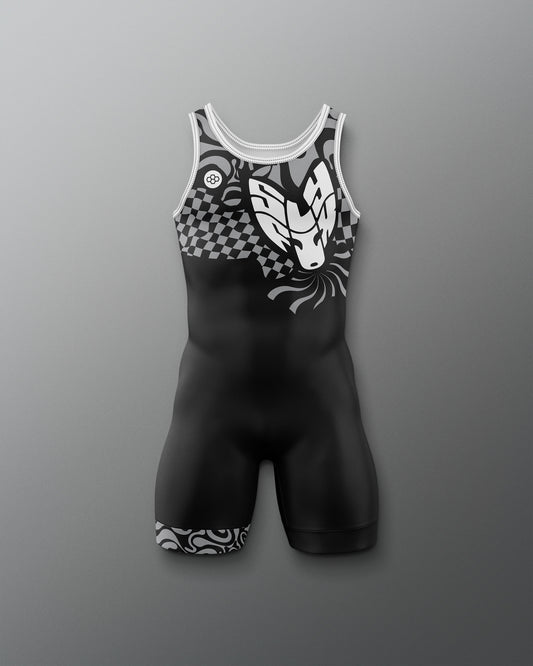
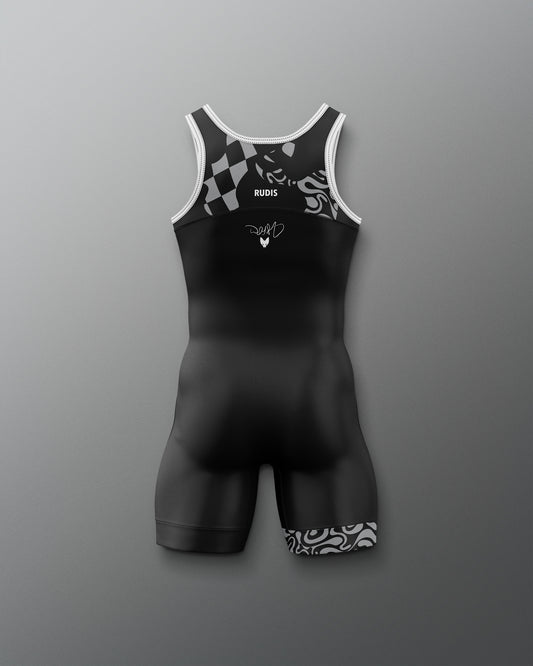
Regular price
$77.00
Sale price
$77.00
Regular price
$77.00
Unit price
per
Schultz Legend Titan Heavyweight Hoodie
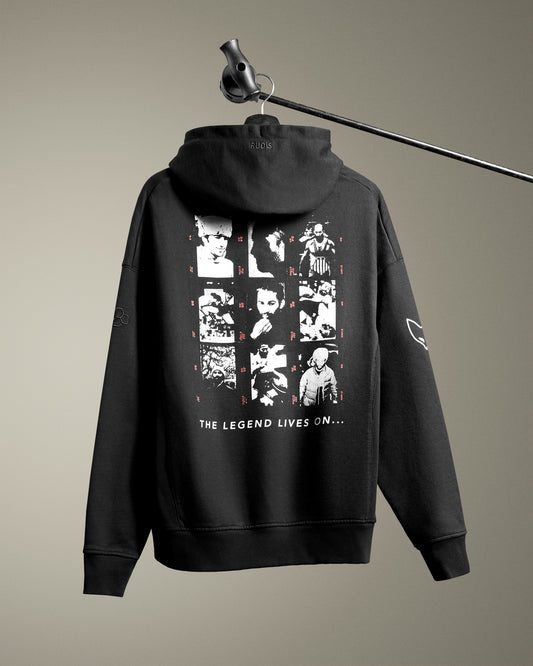
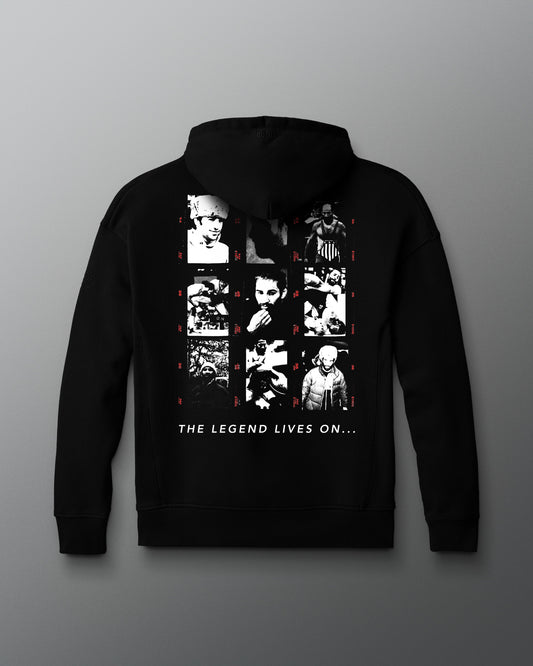
Regular price
$48.00
Sale price
$48.00
Regular price
$48.00
Unit price
per
Schultz Legend Heavyweight T-Shirt
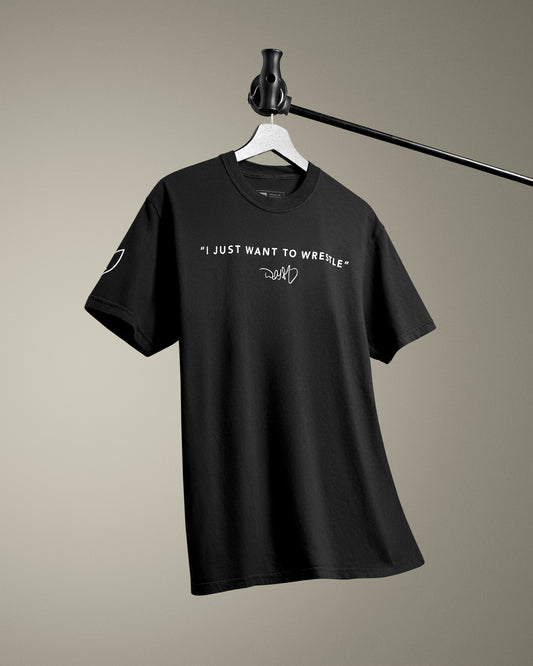
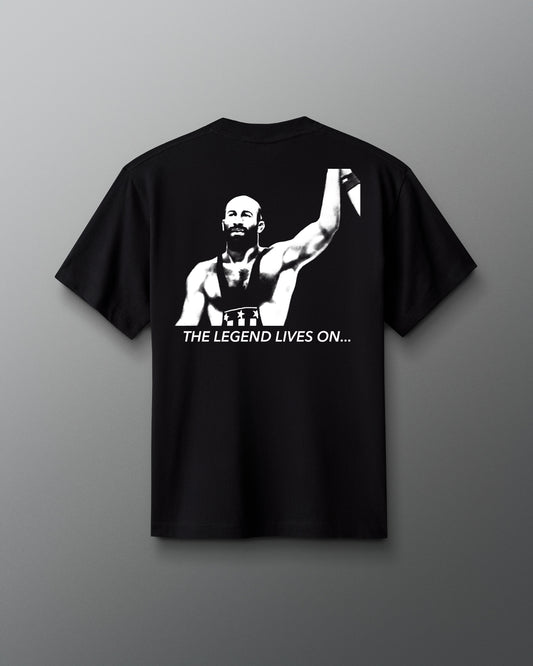
Regular price
$48.00
Sale price
$48.00
Regular price
$48.00
Unit price
per
Schultz Legend Youth Heavyweight T-Shirt

